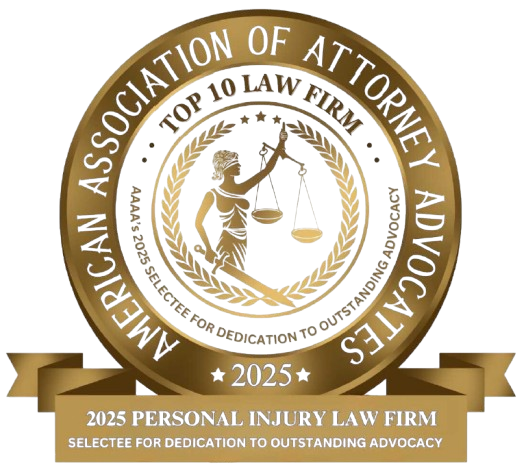Each year, more than 1.7 million rear-end collisions occur on US roadways. These collisions have varying levels of severity. Some victims may walk away unscathed, while others must deal with life-changing injuries.
An important factor to remember is that rear-end collisions may not appear serious but result in devastating outcomes. With millions of vehicles on the roads today, accidents are inevitable.
If you are involved in a rear-end collision in Fort Worth, our experienced attorneys are here to help. We understand the impact even a minor rear-end accident can have on your life and are here to help you seek justice and recover compensation.
We encourage accident victims to contact our experienced Fort Worth car accident attorneys for help with their claims.
Understanding Rear-End Accidents in Fort Worth

At Patterson Law Group in Fort Worth, we often encounter clients in rear-end car accidents. Our experience has identified several contributing factors to these accidents in the area.
Some of the most common causes of rear-end accidents in Fort Worth include the following:
Following too Closely
One of the most frequent causes we’ve observed is the issue of tailgating or following too closely. Texas law requires drivers to maintain a safe following distance from the vehicle ahead. Despite this, many accidents occur when drivers fail to adhere to this rule, resulting in rear-end collisions.
Distracted Driving
Another significant factor is distracted driving. With the rise of smartphone use, we’ve seen an increase in accidents caused by drivers who are not entirely focused on the road. The Texas Department of Transportation notes that distracted driving contributed to over 95,000 traffic accidents in Texas in a recent year, many of which were rear-end collisions.
Speeding
Speeding is also a critical issue. Drivers who exceed speed limits or drive too fast for road conditions have less time to react to slowing or stopping traffic ahead, leading to rear-end accidents.
At Patterson Law Group, we are committed to representing those affected by rear-end accidents in Fort Worth. Our team understands the unique aspects of each case, ensuring we offer comprehensive support to our clients. Whether dealing with insurance claims or seeking compensation for damages and injuries, we are here to guide you through every step.
Navigating Liability in Fort Worth Rear-End Accidents
At Patterson Law Group, our Fort Worth rear-end car accident lawyers understand the complexities of proving liability in rear-end car accidents. The process can be challenging, but we’re here to navigate these obstacles alongside our clients.
The Complexity of Determining Fault
One of the main hurdles in rear-end accident cases is the presumption that the rear driver is always at fault. While Texas law often attributes fault to the driver who collided with the vehicle in front, there are exceptions.
Cases involving sudden stops, mechanical failures, or the leading vehicle reversing suddenly require experience and knowledge to determine liability.
Disputes Over Contributory Negligence
In Fort Worth, as in the rest of Texas, contributory negligence can complicate rear-end accident claims. If the leading driver’s actions contributed to the accident, such as braking unexpectedly without reason or having non-functioning tail lights, this could impact the outcome of a claim.
Gathering Evidence to Support Your Claim
Collecting and presenting concrete evidence is crucial in overcoming these challenges. This includes traffic camera footage, witness statements, and accident reconstruction reports. At Patterson Law Group, we leverage our resources and expertise to gather the necessary evidence, demonstrating the full context of the accident to establish liability.

Why Choose Patterson Law Group for Your Rear-End Accident Case
At Patterson Law Group, we understand the complexities and challenges that victims of rear-end car accidents face. We are here to provide victims with the advice, guidance, and legal representation they need during this difficult time.
Some of the ways we can help with your case include the following:
Experienced Legal Advocacy
We have years of experience in handling rear-end car accident cases. As Fort Worth rear-end car accident attorneys, we understand Texas traffic laws and how they apply to various situations on the road. This knowledge allows us to build strong cases for our clients, navigating the legal system with expertise to achieve favorable outcomes.
Personalized Support and Compassionate Service
We believe in a personalized approach to legal representation. Understanding that every rear-end accident case is unique, we take the time to listen to your story, assess the details of your situation, and tailor our strategy to meet your specific needs. Our commitment to compassionate and attentive service sets us apart, ensuring you feel supported throughout the legal process.
Proven Track Record of Success
Our history of securing favorable settlements and verdicts for our clients speaks volumes. We leverage our legal expertise and negotiation skills to advocate on your behalf, whether in settlement discussions or court. We work to ensure that you receive fair compensation for damages, injuries, and any other losses resulting from the accident.
Choosing Patterson Law Group means entrusting your case to a team that understands the law and genuinely cares about your well-being. As your Fort Worth rear-end car accident lawyer, we are committed to fighting for your rights and delivering the justice you deserve.
Trust Patterson Law Group with Your Rear-End Accident Claim
Navigating the aftermath of a rear-end car accident in Fort Worth requires expert legal guidance and support. At Patterson Law Group, we combine our knowledge of Texas traffic laws with a personalized approach to legal representation, ensuring that each client receives the attention and expertise their case deserves.
As experienced rear-end car accident lawyers, our track record of success is a testament to our commitment to achieving the best possible outcomes for our clients. Choosing us means opting for a team that excels in legal advocacy and values compassion and personalized care.
Contact our Fort Worth personal injury lawyers for help with your claim. Get the compensation you deserve.








